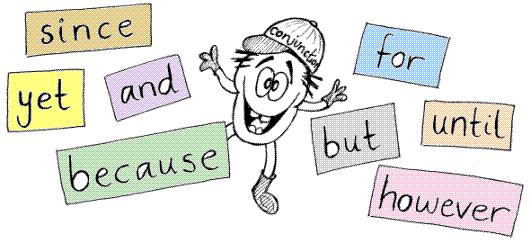If your professor has never talked to you about writing vocabulary, she should have. Too many students work for hours on their grammar, spelling, and sentence structure, but they still turn in mediocre papers because their language simply doesn’t meet college expectations. It’s no surprise, really – switching from high-school level terminology to college words can be quite a feat! In order to help struggling students out, I’ve compiled a list of college words that can help bring your writing from meh to ‘mazing.
Note: This isn’t a list of vocab words and their definitions! I’m going to choose college words that are specifically used to enhance writing, PLUS I’ll show you exactly how to use them.
Transition Words

Transition words are used to carry an idea from one phrase or sentence to another. Not only do transition words signify relationships between ideas, they also link your sentences and paragraphs together to form a cohesive paper with good flow. Here are a couple of transition words that you will need to know when writing papers or assignments.
#1: Additionally. Used to express adding. While this word is probably the most commonly-used among college students, that doesn’t mean it’s the most efficient. Make sure you don’t repeat this word too often; rather, search for more sophisticated ways of expressing addition.
E.g. The Treaty of Versailles was a catalyst for an economic downturn in Germany. Additionally, it caused the German public to resent other Western nations.
#2: Furthermore. Used to express adding, but with greater emphasis.
E.g. Diversity is important in education as it ensures all students feel comfortable. Furthermore, incorporating diversity in the classroom creates a culture of acceptance for all students.
#3: Moreover. Used to express adding. Signifies that this next idea is even more intense/important/earth-shattering than the first.
E.g. Poorly-trained officers are a societal problem because they are given responsibilities to society that they cannot fill. Moreover, they pose a hazard to those around them because they are liable to make deadly mistakes.
#4: However. Used to contrast. Signifies that your first idea is not perfectly true because of your second idea.
E.g. There is one article that claims that the intervention is successful at reducing depression in elderly patients. However, research on the topic shows otherwise.
#5: Despite. Used to contrast, and means “even though.”
E.g. Despite my heavy packages, I felt as light as a feather.
#6: Nevertheless. Used to contrast, and has the same meaning as “despite.” The difference? “Nevertheless” is used at the beginning of a sentence or phrase and doesn’t need to be paired with other words, while “despite” cannot be used alone at the beginning of a sentence/phrase.
E.g. He did state that he was not aware of the driving laws in that state. Nevertheless, he was convicted and sent to prison.
#7: Although. Used to contrast. You place the “although” at the beginning of your first idea, then state your second idea.
E.g. Although I tried my best to write well, I just couldn’t seem to get the hang of my college papers.
#8: While. Used to contrast. Yes, again – I’m sorry! There’s just so many good ways to contrast!
E.g. While Norma was sure that her son was perfectly normal, his friends and acquaintances believed otherwise.
#9: Alternatively. Used to contrast, but also to suggest another option – kind of like using the word “or.”
E.g. A teacher might consider using the reinforcement approach to control his classroom. Alternatively, he could just punish the students for unruly behavior.
#10: Likewise. Used to compare. Remember: contrast shows difference, comparison shows similarity.
E.g. His theory posits that thoughts influence behavior. Likewise, Beck believed that thoughts and emotions were the root causes of behavior.
#11: Similarly. Used to compare.
E.g. Coca-Cola marketed themselves as a cheap, refreshing soft drink. Similarly, Pepsi branded themselves as an affordable option for soda lovers.
#12: Therefore. Used to show cause and effect. When you use the word “therefore,” you are implying that your first idea causes or explains your second idea.
E.g. He had a sweet tooth. Therefore, he always lingered by the desserts section of the grocery store, staring longingly at the treats.
#13: Consequently. Used to show cause and effect just like “therefore.”
E.g. There is limited research on the topic of risk assessment for patient falls. Consequently, the present review is comprised of only six articles.
#14: Accordingly. Used to both express cause and effect and to summarize or conclude. This is a great word to use in your essay’s conclusion!
E.g. Research suggests that hand-washing reduces the risk of contracting the flu. Accordingly, restaurants should require all employees to wash their hands frequently.
#15: Overall. Used to summarize or conclude.
E.g. Overall, World War II was one of the deadliest in the world’s history.
Words That Persuade
Whether you are taking an English course or studying some other topic, you’ll most likely have to write persuasive or argumentative papers. Even if you’re writing a research paper, though, you’ll still need to persuade readers as to why your topic is important. Here are a couple of persuasive words that will increase the power of your argument.
#16: Regardless. Means anyhow or despite, and is used to demonstrate that your point is more important than a different point.
E.g. Regardless of Smith et al.’s findings, clinicians warn against using his proposed intervention.
#17: Nevertheless. Means anyhow or despite, and is used in the same way as “regardless”.
E.g. Poussey was the best-liked character in the show. Nevertheless, producers still decided to have her killed.
#18: Contrary. Means the opposite, and is used to counter or argue a statement.
E.g. Many see video games as being purely detrimental to children. On the contrary, they can be extremely beneficial to children with disabilities.
#19: Undoubtedly. Means obviously, and is used to establish the validity of your argument. It is difficult to argue with an idea preceded by “undoubtedly”!
E.g. CBT is undoubtedly the better choice of therapy for those with anxiety.
#20: Unquestionably. Means obviously, and is used in the same way as “undoubtedly.”
E.g. She was unmistakably an old woman, although her makeup belied her age.
#21: Indisputably. Means obviously.
E.g. The report was indisputably accurate.
#22: Evident. Means apparent or obvious.
E.g. It is evident that Jon Snow truly knows nothing.
#23: Visibly. Once again, this demonstrates that something is apparent or obvious.
E.g. Children in the Montessori school are visibly happier than those enrolled in typical educational programs.
#24: Purportedly. Means supposedly. Use this to knock down a statement you don’t agree with.
E.g. The Jews were purportedly the masterminds behind the Great Plague, although of course, later generations realized that the disease had spread due to poor hygiene.
#25: Maintain. Means to uphold or defend a position. Use this as a more powerful alternative to “stated” or “argued.”
E.g. Smith et al. maintains that Beyoncé is a better singer than Rihanna.
#26: Contend. Means to argue or assert.
E.g. In this paper, I contend that ketchup is the best sauce to use for your chicken.
#27: Posit. Means to put forth as the basis of an argument. It’s not as argumentative as “maintain” or “contend,” but great to use in all kinds of papers.
E.g. The authors posit that discrimination and prejudice derive from the natural human desire for power.
#28: Postulate. Means to put forth as the basis of an argument, like “posit.”
E.g. To that end, I postulate that religiosity is correlated with a higher incidence of eating disorders.
#29: Particularly. Means especially and is used to bring out a strong point.
E.g. The topic is particularly important because it affects the lives of millions of Americans.
#30: Notably. Means especially and, like “particularly,” is used to bring out a strong point.
E.g. The rule was notably absent from the guidebook, suggesting fraud.
#31: Significant. Means important.
E.g. A significant number of participants reported anxiety as they took the test.
#32: Crucial. Means of great importance.
E.g. It is crucial that policymakers adopt the new law right away.
#33: Critical. Means of great importance.
E.g. The navy was critical to the military’s strategy in the war.
#34: Key. Means of great importance.
E.g. Assessment is key within the field of special education.
#35: Vital. Means of great importance.
E.g. It is vital that we work with police to improve training of officers.
Words that Show

Persuading is great, but what if the main focus of your essay to show rather than to argue? If you’re writing an informative essay or a research paper, you most likely will need to use words that show. Here are just a few that will help boost your essay.
#36: Illustrate. Means to explain or make clear. Use this to bring examples that support your argument.
E.g. To illustrate their point, Smith et al. discuss a case study of a girl with anorexia.
#37: Exemplify. Means to show by giving an example.
E.g. The case study exemplifies the success of this form of therapy.
#38. Emphasize. Means to give special importance to an idea.
E.g. She emphasizes that it is the chocolate chips rather than the dough that give the cookies such a delicious flavor.
#39: Demonstrate. Means to show.
E.g. Smith et al.’s findings demonstrate the effectiveness of the intervention.
#40: Indicate. Means highly suggest.
E.g. Results indicate that the Japanese are still resentful about the U.S.’s use of the atom bomb in Hiroshima and Nagasaki.
Research Words

What if you’re required to write about real research? Whether you’re performing your own research study or writing about other people’s experiment, you’ll need to use research-related words. This is a super-short list, but it should be enough to get you started on your research paper.
#41: Incidence. Means rate or frequency.
E.g. The incidence of depression among nursing home residents is 20%.
#42: Prevalence. Means rate or frequency.
E.g. Clown phobia is especially prevalent among young children.
#43: Correlate. Means associate or relate.
E.g. An obsession with man-buns is correlated with living in Brooklyn.
#44: Population. Means a group of people with similar characteristics.
E.g. The population for this study is seniors struggling with obesity.
#45: Hypothesis. Means an explanation of a phenomenon with limited evidence. It’s kind of like an educated guess that will serve as the basis for a research study, which will prove if the guess is true or not.
E.g. We hypothesize that it is the salt on the potato chips that causes weight gain, and we will conduct an experiment to find out the validity of this suggestion.
#46: Data. Means facts and statistics. Data is used to support a statement.
E.g. Our data suggests that it is not the salt in potato chips, but rather the fat, that causes weight gain.
#47: Construct. Means an idea based on a concept. It’s kind of like a wider set of ideas.
E.g. Identity is a construct often found in the field of psychology.
#48: Effect. Means result or consequence.
E.g. The intervention had a positive effect on the children.
#49. Effective. Means successful in producing a desired result. Don’t get confused between “effect” and “effective”!
E.g. The improved levels of depression demonstrate that the treatment was effective.
#50. Empirical. Means based on observation or experience. Is largely used to describe something that is based on evidence.
E.g. The review includes five empirical studies on veganism.
Using College Words
There you have it – 50 college words that will help you transition, persuade, show, and discuss research in your writing! How do I use these words, you ask? First, always try to find several examples of these words used in sentences before you place them into your own paper. You don’t want to know what a word means, but use it incorrectly. Second, look up different variations of each word! The words I presented here may be in a different tense or form than the one you need. You aren’t limited to the exact word I used; look up variations, and have fun spicing up your paper!





